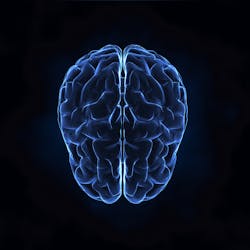Disrupted connections between memory and appetite regulating brain circuits are directly proportional to body mass index (BMI), notably in patients who suffer from disordered or overeating that can lead to obesity, such as binge eating disorder (BED), according to new research from the Perelman School of Medicine at the University of Pennsylvania.
Published in Nature, the research notes that individuals who are obese have impaired connections between the dorsolateral hippocampus (dlHPC) and the lateral hypothalamus (LH), which may impact their ability to control or regulate emotional responses when anticipating rewarding meals or treats.
In this study, researchers were able to evaluate patients whose brains were already being monitored electrically in the Epilepsy Monitoring Unit. Researchers monitored brain activity as patients anticipated and then received a sweet treat (a chocolate milkshake). They found that both the dlHPC and the LH activated simultaneously when participants anticipated receiving the rewarding meal. These researchers confirmed using stimulation techniques pioneered by coauthors, Kai Miller, MD, PhD, and Dora Hermes Miller, PhD, from Mayo Clinic, that this specific zone of the hippocampus, the dlHPC, and LH exhibited extremely strong connectivity, as well.
In individuals with obesity, researchers found that the impairment of this hypothalamus-hippocampus circuit was directly proportional to their BMI. That is, in participants with a high BMI, the connection was even more disturbed.
To further validate the connection, Halpern’s team used a technique called “brain clearing,” to analyze brain tissue. The technique revealed melanin-concentrating hormone, a hormone known to regulate feeding behavior that is produced in the LH. They found the presence of MCH in the dlHPC, and nowhere else, confirming a link between the two regions.
Perelman School of Medicine at the University of Pennsylvania release on Newswise

